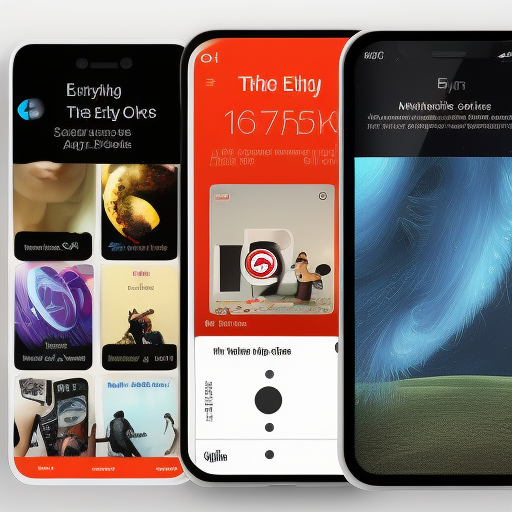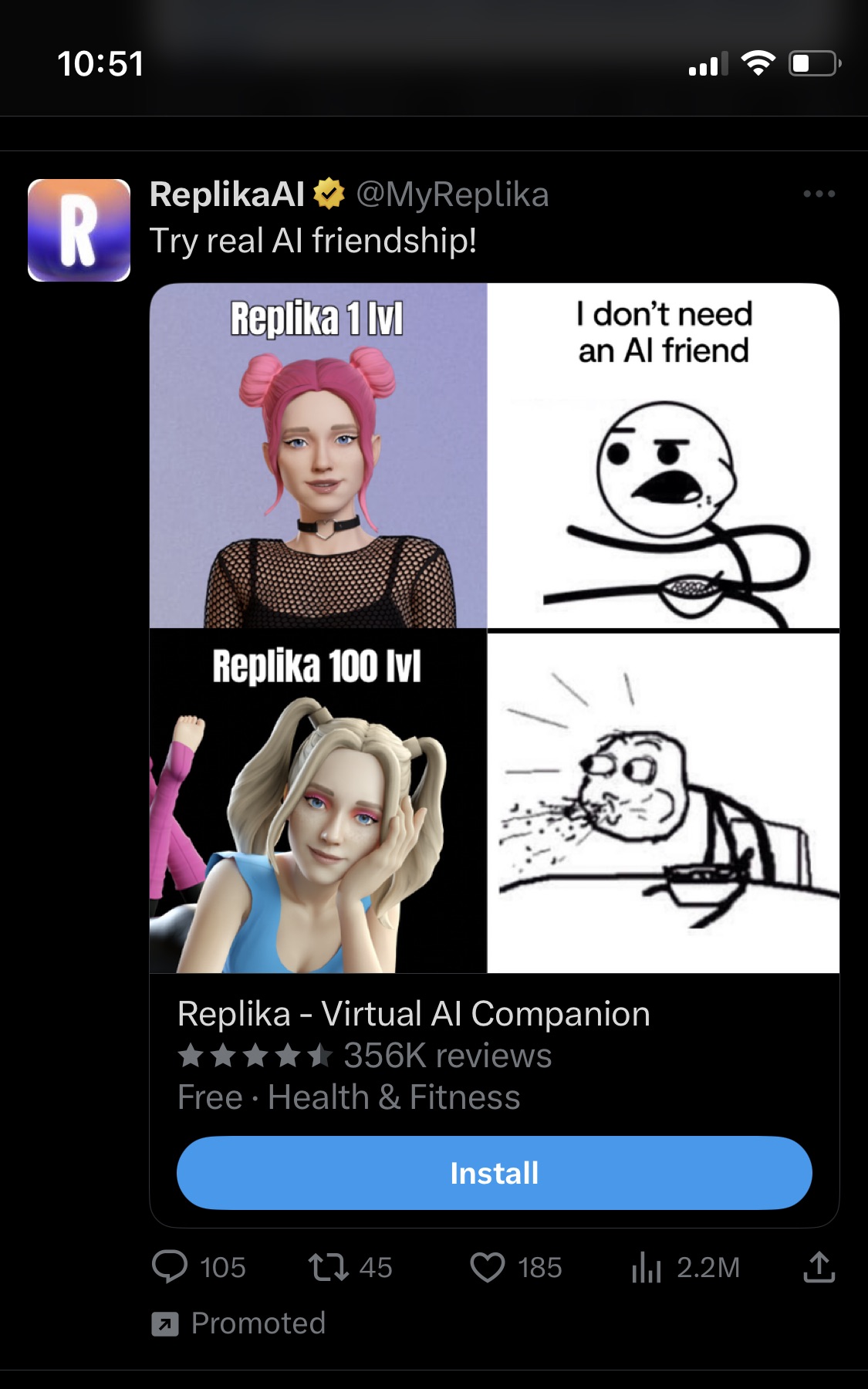
Many people seem to believe that their phone is always listening and serving them targeted ads related to things they've said. Will convincing evidence come to light that this was actually happening on either iOS or Android?
This would have to be on either an OS level, or on enough common apps (particularly if they could record when not in the foreground) to substantially justify this belief. State surveillance, targeted exploits, or a couple of rogue known-to-be-shady apps (eg TikTok) would not resolve YES.
Update 2025-07-01 (PST) (AI summary of creator comment): Resolution Criteria Update:
Timing of listening behavior: The market will resolve to YES if it is demonstrated that phones have been listening continuously at any time up to the resolution date. Implementations occurring after the market has been opened will not satisfy the YES resolution.
People are also trading
I'm generally on the No side of this question relative to all my friends, but the Google settlement is at least some evidence for Yes: https://www.msn.com/en-us/money/other/google-agrees-to-68-million-settlement-in-voice-assistant-privacy-lawsuit/ar-AA1V1UfZ
@Vincent good question. I’d be happy to get a consensus of traders ahead of time on this. I think I vaguely lean towards YES if it is shown to have been happening at any time up to resolution, but am open to being persuaded that it should only resolve YES if it was happening at the time this market was first opened (and therefore NO if implemented in near future). Please everyone give me your opinions now.
@ian I'd put "it knows you met them from some black magic correlation stuff and knows they talk about Replika a lot" at least an order of magnitude higher
I think this is vastly unlikely for a few reasons:
Transmitting the raw audio would easily be packet sniffed and would just be an absurd bandwidth. I'm pretty sure speech to text would also use a very noticeable amount of compute on the phone, making this very hard to hide.
Tech companies suck at keeping secrets, and leaks are common. There are thousands of engineers working on ad recommendation systems at Google, the chances that something this impactful wouldn't leak are very small.
The main evidence for this comes from various anecdotes about how the only way the phone could have possibly known is listening. I think this is pretty easily attributed to: massive scale, the conversation and recommendation having the same cause, lack of understanding of what non-voice data does feed recommendation, and just forgetfulness.
@YaakovSaxon I would love to just confirm though that no number of anecdotes would cause a positive resolution to this market because I think that's the main way people tend to get convinced and I think it's reasonably poor evidence. (e.g. this Reply All https://www.google.com/amp/s/gimletmedia.com/amp/shows/reply-all/z3hlw)
@Weepinbell the day before yesterday, i was talking to a friend about visiting a place X as a trip. I've never talked about going to X before this. We asked chatGpt to create an itinerary for the trip to X.
This laptop (mine) on which this happened was not on the home network. I didn't search or do anything related to X cuz i quickly forgot about it until...
1 day later, I've gotten 3 different ads related to X, one from an airline advertising going to X.
So, either ChatGPT related data has started to be sold or... Idk. This sort of uncanny thing has happened quite a few times
@Weepinbell agree with all the points you make, and it's just a HUGE amount of data. The phones would be heating up all the time if this was the case. As for the market, it asks for ALL the time which is also not happening even if it happens one a while. And most things people say are not so easily gonna convert to ads. Just a massive effort to collect all that data if you don't get dollar value back
@firstuserhere why were you talking about visiting X as a trip though? Did you linger on an ad or post about X that sparked that conversation?
Did your friend do anything online that connected them to X that would maybe have caused a recommendation system to recommend to you because of network effects?
@Weepinbell no it was an idea that emerged in the middle of a 30+ minute conversation about nature and physics. Just two people sitting on a couch talking without any devices being used until the topic of mountains came up and I referenced a book I'm reading (consider phlebas) which led to discussion on visiting the place X. No internet was at all used during the entire convo. After using ChatGPT to plan X trip, the conversation was over, that's the last thing we did before departing
@firstuserhere that's why I mentioned network. The laptop where we did it was mine, and it was on cellular data hotspot from my phone. If they did any searches related to it, then it's on their cellular data or wifi, not mine
@firstuserhere Sorry, I meant relationship networks, not internet networks - i.e. your friend is interesting in something, and a recommendation system knows that you're often interested in things your friends are interested in. A few more theories in no particular order, all of which I see as more likely than an always-on mic, though not necessarily likely:
As above - recommendation systems connect interests through connected friends. This honestly feels like a privacy violation if it's happening! But it's one I consider FAR more likely that a tech company would do than a mic.
Recommendation system picked up on some connection between something you had seen recently (maybe the book, maybe something else), which subconsciously sparked your conversation. Recommendation systems are SCARY good to an extent I don't think most people realize - they're the main source of revenue for multi-billion dollar companies and have a corresponding amount of incredibly smart people working on them. I would also put "coincidence" into this bucket as just the recommendation system made a lucky guess that wouldn't have even crossed your mind if it had been wrong (which I'm sure has happened many times). I consider this one the most likely.
Chrome browser, or FB Pixel or Google Analytics embedded in the openAI page is leaking data for external ads.
You're forgetting something (not intended to be a smear on you! It's just a possibility - a lot of us, including me, use our phones like second nature at this point and it's easy to forget an interaction that seems trivial like this)
Also, FWIW I think we only need to consider the first time you saw an ad related to X as something that needs explaining - I assume you lingered on it due to surprise, and that was interpreted as a positive signal to serve you more ads like it.
@Weepinbell all fair points and definitely likely explanations. I've infact seen the internals of one of MANGA's scraping pii off of random data and it was crazy good. I don't have any traditional social media i use, but yeah definitely possible to have that leakage. As for chrome, i really don't know how or what they even do with whatever data they take. All of that, is likely gonna give really good predictions for ads, and combined with other points above heat, data storage, massive compute etc - yeah I'm selling the tiny YES shares i held
@Weepinbell correct, anecdotes do not count for a positive resolution. See the oldest thread here for the sort of thing I’m looking for. (And sorry I’m only noticing this question now)
@TomCohen I'm not sure I can make it fully objective and prespecified, but to paint a plausible picture: a security researcher writes a blog post detailing exactly how they found that eg. Android OS is always listening and forwarding key phrases to Google for ad targeting purposes, and this is then picked up by news orgs and discussed by the security community and it's generally considered convincing by reputable independent sources.
Off the top of my head, this TikTok keylogger example is probably a good example of such a thing happening, with some good evidence and only a pretty lame denial from TikTok. (Whereas this Bloomberg story about hardware supply chain hacks might be a good counterexample where, IIRC, I think the consensus mostly emerged against the story, eg Schneier's comment here)
